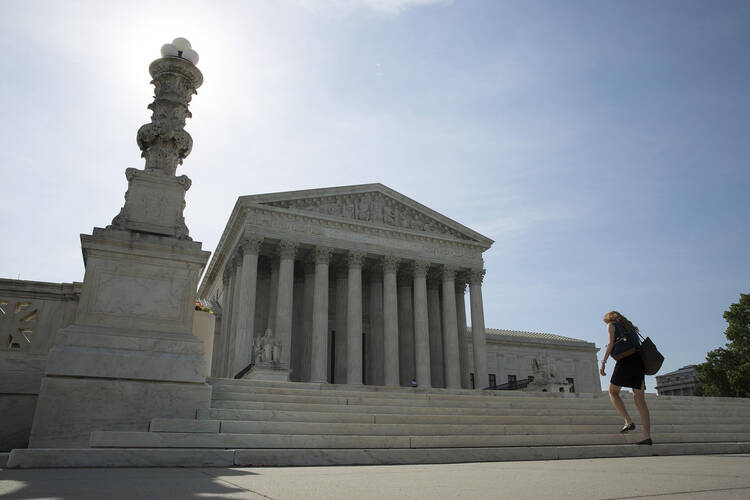Officials in the Pittsburgh and Erie dioceses hailed a decision by U.S. Supreme Court Justice Samuel Alito to temporarily halt enforcement of the federal contraceptive mandate against Catholic Charities and other social service agencies in the dioceses.
The U.S. government was ordered to file a response by April 20.
"This stay is a welcome but interim step in pursuit of the religious freedom that our laws and Constitution have guaranteed to all Americans," Bishop David A. Zubik of Pittsburgh said in a statement April 17. "We remain in prayer that justice will prevail and that Catholic Charities will be allowed to follow the teachings of the Catholic Church."
Anne-Marie Welsh, spokeswoman for the Erie Diocese, said church officials there also were pleased with Alito's order "responding to our emergency request to the Supreme Court to recall and stay the mandate."
"We are grateful to the Jones Day law firm, which continues to pursue this on our behalf on a pro bono basis," she added.
Pending receipt of the government's response, Alito's April 15 order affects a Feb. 11 ruling by a three-judge panel of the 3rd U.S. Circuit Court of Appeals that reversed a November 2014 decision by a lower court judge granting the Pittsburgh and Erie dioceses a temporary injunction against enforcement of the mandate.
Under the federal Affordable Care Act, most employers, including religious ones, are required to cover employees' artificial birth control, sterilization and abortion-causing drugs, even if employers are morally opposed to such coverage.
The 3rd Circuit ruling would require Catholic institutions in the Erie and Pittsburgh dioceses to comply with the mandate or face massive fines.
The fines for refusing to follow a government mandate the Catholic Church "deems immoral" would jeopardize the future of Catholic Charities of Pittsburgh, Bishop Zubik said.
He added, "We remain in prayer that justice will prevail and that Catholic Charities will be allowed to follow the teachings of the Catholic Church."
The panel's ruling, written by Judge Marjorie Rendell, said the court found the mandate did not impose a substantial burden on the religious organizations as the Pittsburgh and Erie dioceses maintain.
In separate lawsuits, the Pittsburgh and Erie dioceses first filed a legal challenge to the constitutionality of the federal contraceptive mandate in May 2012.
Plaintiffs in the Erie lawsuit include the Diocese of Erie, the St. Martin Center and the Prince of Peace Center. Plaintiffs in the Pittsburgh lawsuit include the Diocese of Pittsburgh, Catholic Charities of Pittsburgh and the Catholic Cemeteries Association of the Diocese of Pittsburgh.
Their suits are among dozens filed by religious employers working their way through the courts.
Only those religious employers that meet narrow criteria set by the Obama administration are exempt from the mandate. Nonexempt religious employers can opt out of providing the coverage using what the administration calls a "work around." They must notify Health and Human Services in writing of their religious objections. Then HHS or the Department of Labor government in turn tells insurers and third-party administrators that they must cover the services at no charge to employees.
But many religious groups object to the notification, saying they still would be complicit in supporting practices they oppose.








